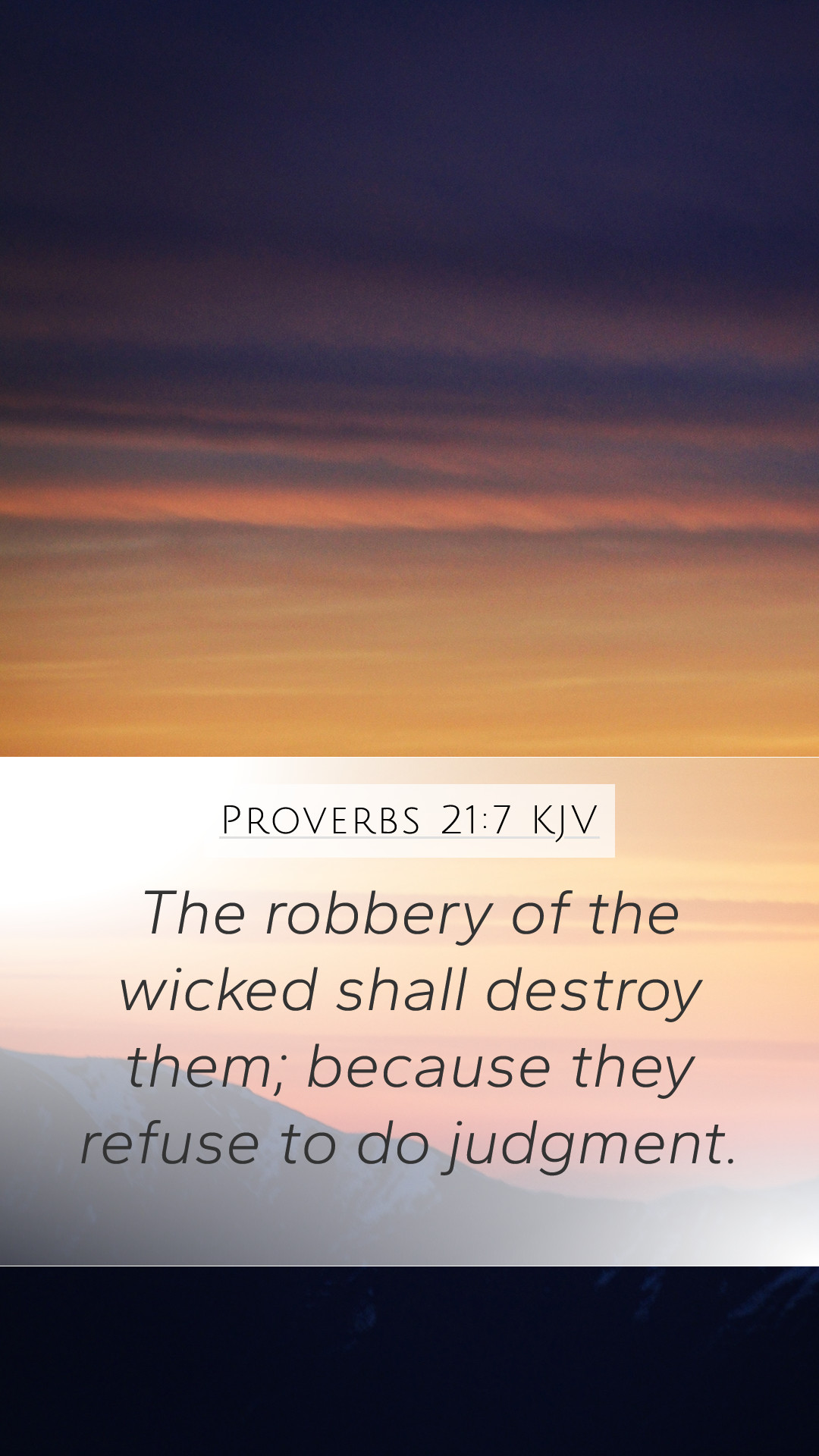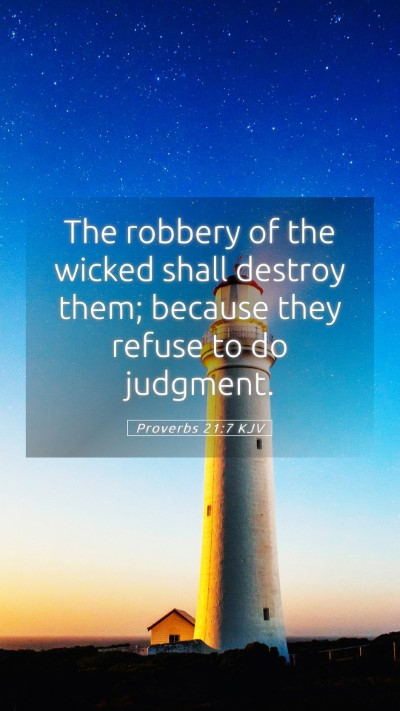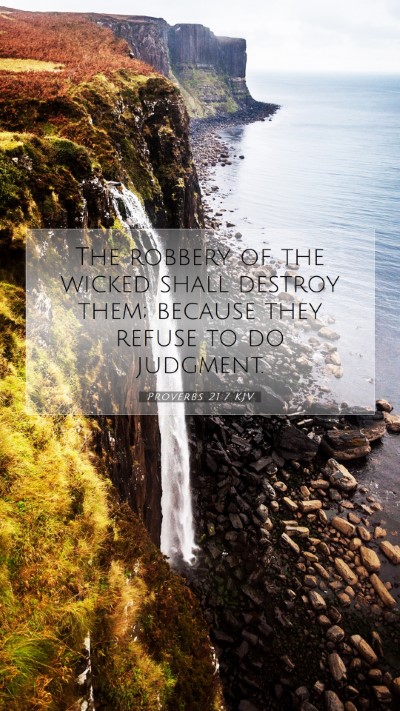Understanding Proverbs 21:7 - Bible Verse Commentary
Proverbs 21:7 (KJV): "The robbery of the wicked shall destroy them; because they refuse to do judgment."
This verse encapsulates a profound truth about justice and divine retribution. Let us explore its meaning through various commentaries and insights from biblical scholars.
Verse Interpretation
The phrase "the robbery of the wicked" refers to the unjust gains accrued by those engaging in evil practices. The subsequent clause emphasizes that such wrongdoing leads to destruction. The essence of this verse revolves around the moral consequence of injustice.
- Matthew Henry's Commentary: Henry explains that the wicked often think they can prosper through dishonest means; however, these ill-gotten gains will inevitably lead to their downfall. He emphasizes that God's judgment is certain.
- Albert Barnes' Notes: Barnes notes that there is a principle of divine justice that underlies human affairs, whereby those who indulge in wrongdoing will face consequences that are unavoidable. The refusal to "do judgment" indicates a deliberate choice to engage in immorality.
- Adam Clarke's Commentary: Clarke reinforces the idea that the wicked are self-destructive due to their refusal to uphold justice. He elaborates on the repercussions of sin, highlighting that their own schemes often lead to their ruin.
Deepening Our Understanding of Scripture
Understanding Proverbs 21:7 requires a reflection on broader biblical themes regarding justice, sin, and divine truth. This passage serves as a sobering reminder of the fate that awaits those who choose to do evil.
Here are some key themes present in this verse:
- Divine Justice: The Bible consistently teaches that justice is paramount, and those who negate it face consequences.
- Consequences of Sin: The teachings in Proverbs warn that wrongdoing, such as robbery or deceit, leads to destruction rather than prosperity.
- Call to Righteousness: Believers are encouraged to pursue righteousness and justice in their actions, establishing a counter-narrative to the way of the wicked.
Biblical Exegesis and Its Application
The historical context of Proverbs reveals a society that valued wisdom and morality. The principles found in this verse are timeless and applicable to modern life.
- Application in Daily Life: This verse invites individuals to reflect on their choices and the impact of their actions.
- For Bible Study Groups: Discussing the repercussions of unethical behavior can foster rich dialogue and personal accountability.
- Insights for Online Bible Study: Examine contemporary issues through the lens of biblical justice. How do modern society's views on morality align or diverge from scriptural teachings?
Cross References
To further enrich our understanding of Proverbs 21:7, we can relate it to several other scripture passages:
- Proverbs 10:2: "Treasures of wickedness profit nothing: but righteousness delivereth from death."
- Proverbs 11:5: "The righteousness of the perfect shall direct his way: but the wicked shall fall by his own wickedness."
- Ecclesiastes 8:11: "Because sentence against an evil work is not executed speedily, therefore the heart of the sons of men is fully set in them to do evil."
Conclusion: Embracing Justice and Righteousness
In summary, Proverbs 21:7 teaches about the destructive consequences of wickedness and emphasizes the importance of justice. It encourages believers to engage in righteous living, clearly illustrated by the teachings of Matthew Henry, Albert Barnes, and Adam Clarke.
As we study this verse, especially in the context of personal accountability and social integrity, let us strive to grasp the true significance of God's wisdom in our lives.


